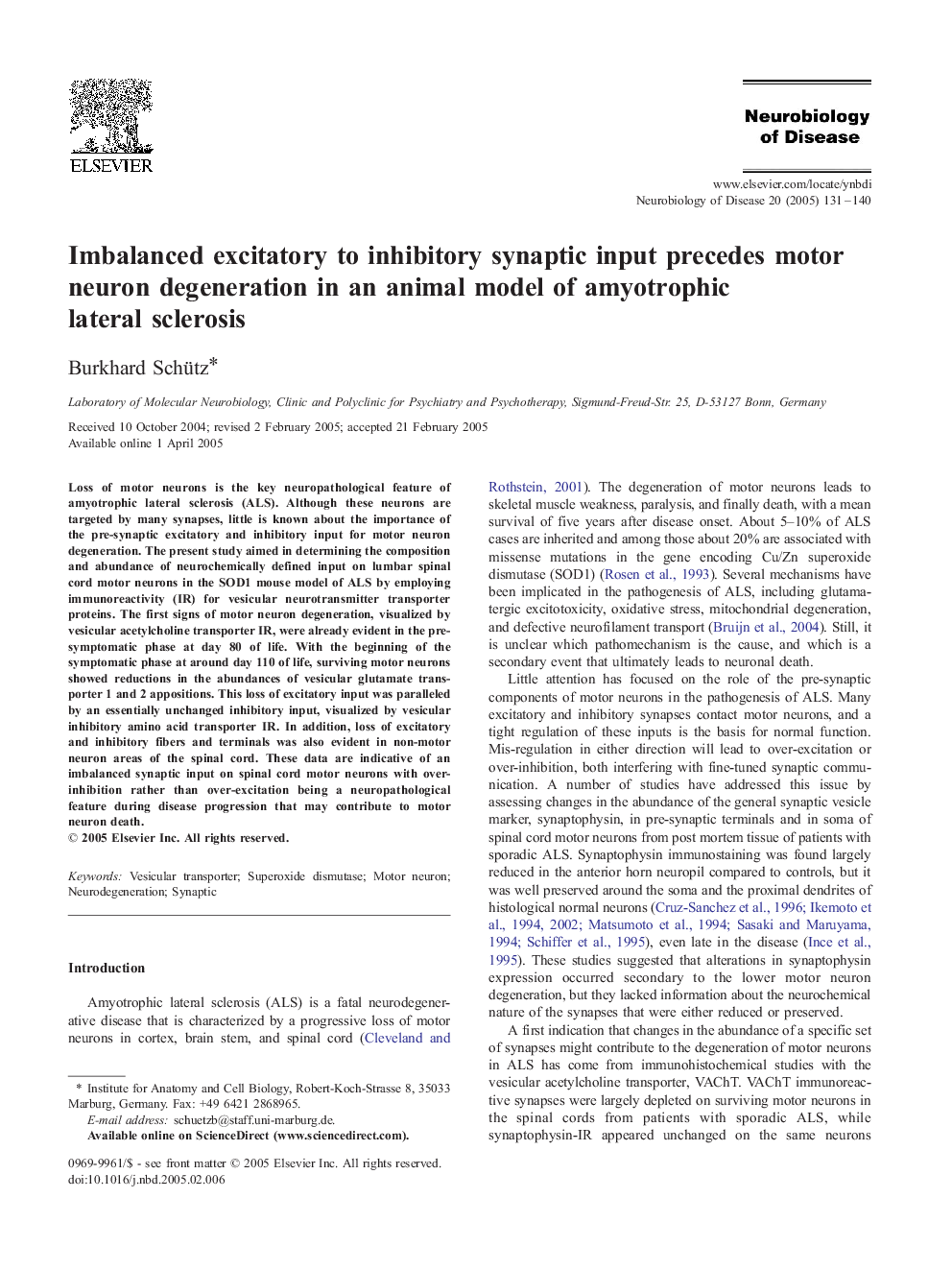| کد مقاله | کد نشریه | سال انتشار | مقاله انگلیسی | نسخه تمام متن |
|---|---|---|---|---|
| 9989668 | 1580762 | 2005 | 10 صفحه PDF | دانلود رایگان |
عنوان انگلیسی مقاله ISI
Imbalanced excitatory to inhibitory synaptic input precedes motor neuron degeneration in an animal model of amyotrophic lateral sclerosis
دانلود مقاله + سفارش ترجمه
دانلود مقاله ISI انگلیسی
رایگان برای ایرانیان
کلمات کلیدی
موضوعات مرتبط
علوم زیستی و بیوفناوری
علم عصب شناسی
عصب شناسی
پیش نمایش صفحه اول مقاله

چکیده انگلیسی
Loss of motor neurons is the key neuropathological feature of amyotrophic lateral sclerosis (ALS). Although these neurons are targeted by many synapses, little is known about the importance of the pre-synaptic excitatory and inhibitory input for motor neuron degeneration. The present study aimed in determining the composition and abundance of neurochemically defined input on lumbar spinal cord motor neurons in the SOD1 mouse model of ALS by employing immunoreactivity (IR) for vesicular neurotransmitter transporter proteins. The first signs of motor neuron degeneration, visualized by vesicular acetylcholine transporter IR, were already evident in the pre-symptomatic phase at day 80 of life. With the beginning of the symptomatic phase at around day 110 of life, surviving motor neurons showed reductions in the abundances of vesicular glutamate transporter 1 and 2 appositions. This loss of excitatory input was paralleled by an essentially unchanged inhibitory input, visualized by vesicular inhibitory amino acid transporter IR. In addition, loss of excitatory and inhibitory fibers and terminals was also evident in non-motor neuron areas of the spinal cord. These data are indicative of an imbalanced synaptic input on spinal cord motor neurons with over-inhibition rather than over-excitation being a neuropathological feature during disease progression that may contribute to motor neuron death.
ناشر
Database: Elsevier - ScienceDirect (ساینس دایرکت)
Journal: Neurobiology of Disease - Volume 20, Issue 1, October 2005, Pages 131-140
Journal: Neurobiology of Disease - Volume 20, Issue 1, October 2005, Pages 131-140
نویسندگان
Burkhard Schütz,